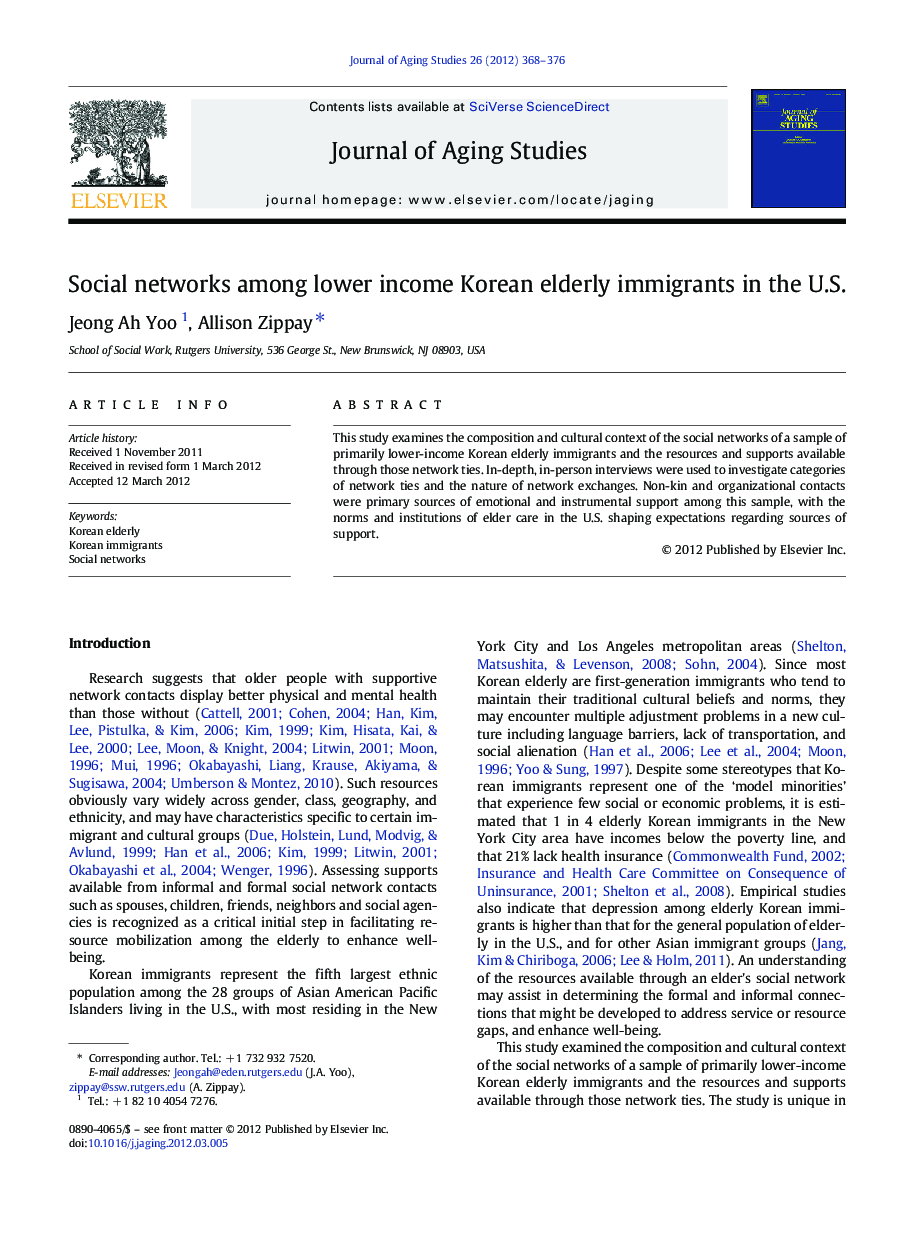| Article ID | Journal | Published Year | Pages | File Type |
|---|---|---|---|---|
| 1081886 | Journal of Aging Studies | 2012 | 9 Pages |
This study examines the composition and cultural context of the social networks of a sample of primarily lower-income Korean elderly immigrants and the resources and supports available through those network ties. In-depth, in-person interviews were used to investigate categories of network ties and the nature of network exchanges. Non-kin and organizational contacts were primary sources of emotional and instrumental support among this sample, with the norms and institutions of elder care in the U.S. shaping expectations regarding sources of support.
► We examined social ties of elderly Korean immigrants in the U.S. ► Neighbors, senior centers, and public assistance were primary sources of support. ► Children and spouses were less frequent primary sources of support. ► Elder supports in the U.S. differed from kin-focused traditions in home country.
